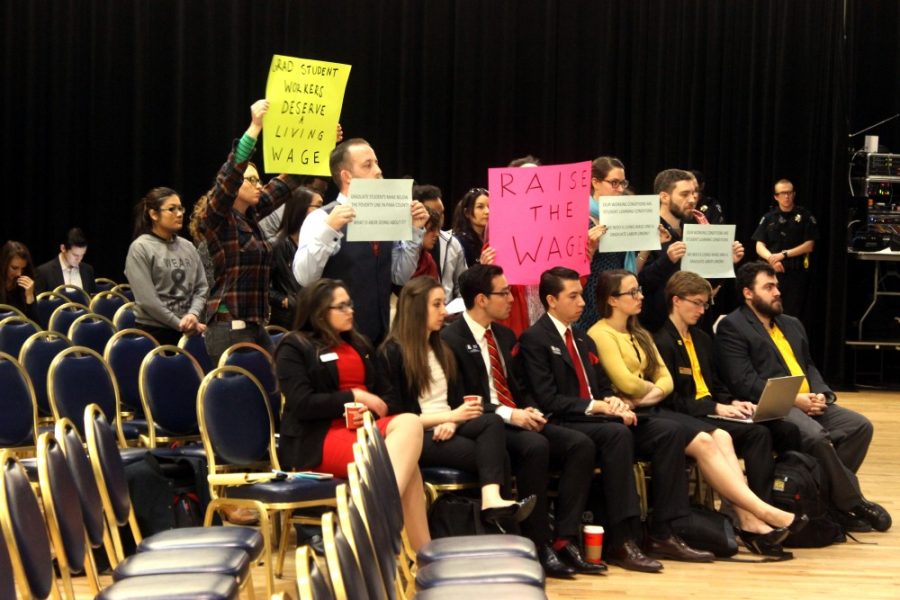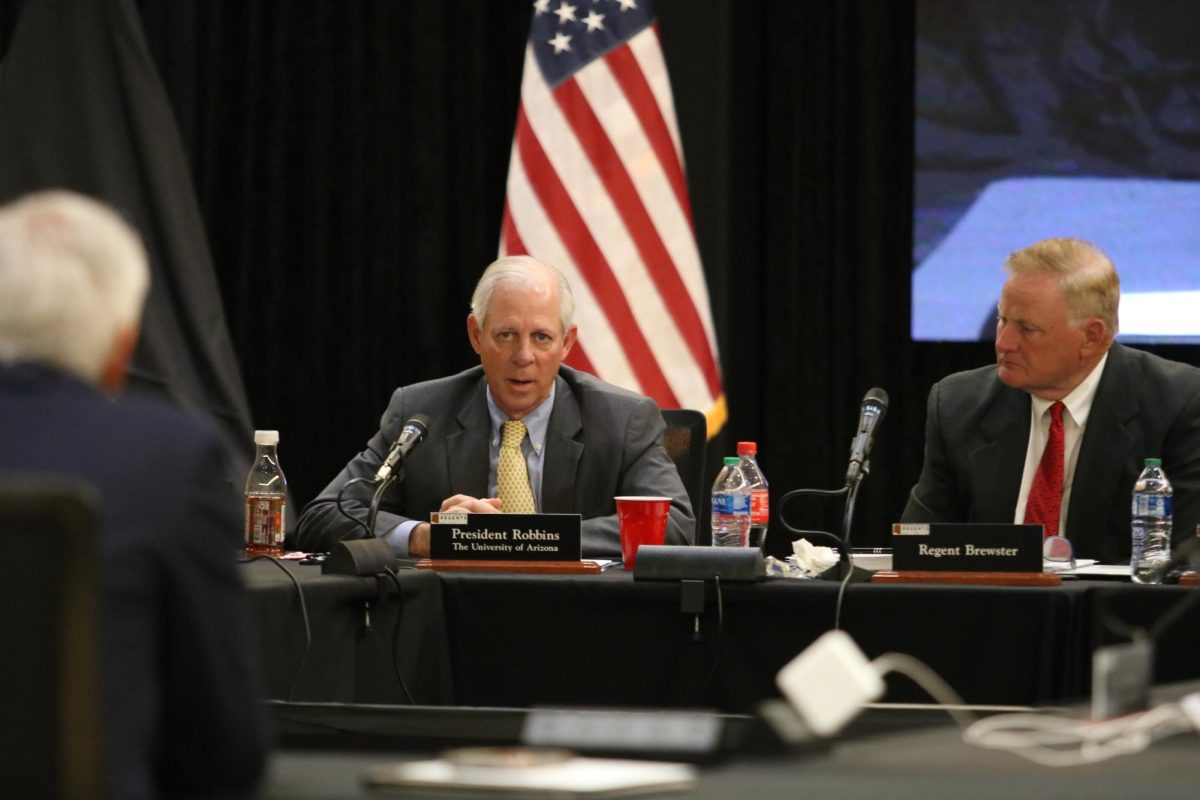The Graduate Student Organizing Committee, among other groups, addressed the Arizona Board of Regents in its call to the audience during the Nov. 20 meeting, hoping to improve the wages and benefits of graduate student workers.
The GSOC’s petition, Help Save Higher Education in Arizona, has garnered over 540 signatures online. It calls upon Gov. Doug Ducey, the Arizona Legislature, the board of regents and the UA to reverse the $99 million state budget cuts to education. The petition demands that all university employees be paid a living wage and be provided comprehensive health insurance and asks for the right to unionize.
GSOC speakers at the regents’ meeting highlighted the performance incentives given to the three presidents of Arizona’s state universities after the 2014-2015 state budget cuts, emphasizing the disparity between benefits received by top employees and those received by graduate student teaching assistants.
According to both the GSOC and to UA Provost Andrew Comrie, the average UA graduate student TA makes about $16,000 a year for a half-time position, teaching nine months out of each year. Graduate teaching assistants also receive full-tuition waivers and compensation for campus student health insurance.
The Provost Office and GSOC differ in their understandings of the amount compensated to graduate student assistants in per-hour estimates. Provost Comrie said that graduate student TAs receive somewhere around $20 an hour, but Kyle Blessinger, a graduate student pursuing a master’s degree in higher education and a TA for two courses in the family studies and human development department, said per-hour pay is actually much lower than that.
“I say most of us work about 40 hours a week. My math may have been a little off, but in a given week, we make the equivalent of $9.71 an hour. We’re only paid for 20 hours a week but many of us work much more than that,” Blessinger said.
A founding member of GSOC and a representative for the Graduate and Professional Student Council, Alexander Karaman, said it was hard to gauge the regents’ response to the petition because the regents are not required to respond during the call to the audience.
But Blessinger, who spoke during the petition, said he did not feel like he was listened to.
“Chairman Heiler was on his phone text messaging most of the time,” Blessinger said.
The lack of response did not surprise Karaman, who was with the GSOC when it presented before the regents last year.
During the GSOC’s address, former Chairman Mark Killian paused the call to the audience and recommended the GSOC instead speak to the student regent.
Karaman said he had several problems with this suggestion.
“The issues we were bringing, we were bringing as employees—as student instructors of undergraduate students—and for them to [tell us] to speak to an undergraduate student representative rather than saying that we have the right, or that we deserve to be able to speak to the board itself, is insulting,” Karaman said.
The second issue, he said, was that the student regents are more like pawns than representatives.
Each year one of the three state universities nominates potential student regents using a selection committee. Student governments like the Associated Students of the University of Arizona have the job of confirming nominees who are then sent on to be approved by the governor, who ultimately nominates one student to be confirmed by the Arizona Senate.
“Year after year after year the governor ignores those recommendations—[the regents] ignore those recommendations—and instead put somebody in who’s more or less a child of some friend of theirs,” Karaman said. “So even though tons of people come together and nominate actual strong student leaders from the university, [the governor and the regents] ignore that nomination and pick somebody of their own.”
For these reasons, Karaman said GSOC’s hope does not rest solely with the regents. The committee hopes to gain traction with the UA administration and with individual colleges inside the university.
GSOC has been building its student following. On average, between 60 and 100 students attend GSOC events, Karaman said.
GSOC members plan to continue to take action in the spring semester.
Follow Michelle Jaquette on Twitter.









